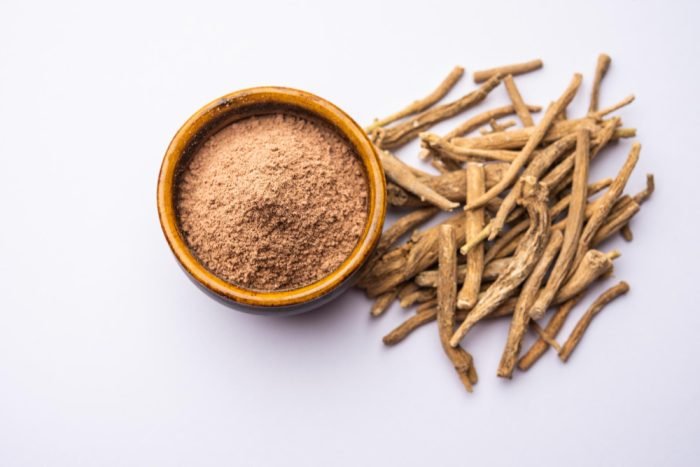Ashwagandha has been touted as a magical herb with many benefits, from stress relief to better sleep. But like many herbal remedies, it has a darker side. When I first heard about Ashwagandha, I was intrigued by its potential to help with anxiety and boost my energy levels. As someone who deals with stress daily, it felt like a solution that could change my life. But after a deep dive into the research and hearing from others, I began to notice something alarming: Ashwagandha can cause real harm if not used properly.
In this article, I’ll dive into the potential risks and damages Ashwagandha can bring. I’ve come across personal stories from people who experienced side effects they never expected. It’s not to say Ashwagandha doesn’t have benefits—it absolutely does—but it’s crucial to know the risks. If you’re thinking about trying Ashwagandha, read on before making your decision.

The Hidden Side of Ashwagandha: Why It’s Not for Everyone
Long-term Effects on Hormones
One of the primary reasons people turn to Ashwagandha is its ability to help balance cortisol levels. But what happens when that balance goes too far? I once spoke with a friend, Jake, who had been taking Ashwagandha for six months to manage his stress. At first, it worked wonders for him. He slept better and felt less anxious. But as time passed, he began to feel fatigued and sluggish, the complete opposite of what he expected.
What Jake didn’t know was that Ashwagandha can sometimes lower cortisol to unhealthy levels. For someone already prone to low cortisol or adrenal fatigue, this can be a recipe for disaster. The herb can disrupt your hormonal balance, leaving you feeling worse than before. So if you have any known hormone issues, especially related to the thyroid or adrenal glands, Ashwagandha might not be for you.
Key Point: Ashwagandha can potentially lead to hormonal imbalances, particularly for those with pre-existing conditions. Be mindful of your dosage and consult with a healthcare provider if you have thyroid or adrenal issues.
Digestive Problems: Not as Gentle as You Think
Many people think of herbal supplements as gentle on the system, but that’s not always the case. Ashwagandha can cause digestive issues, especially when taken in higher doses. Personally, I’ve experienced mild nausea after taking Ashwagandha on an empty stomach. It wasn’t severe, but enough to make me rethink my approach.
But others have had much worse experiences. Take Sarah, for example. She started using Ashwagandha to help with anxiety, but within two weeks, she developed stomach cramps and diarrhea. She didn’t realize at first that Ashwagandha was the culprit. After eliminating other factors from her diet, she stopped the supplement, and her digestive issues cleared up.
Ashwagandha can be harsh on sensitive stomachs, especially if taken incorrectly. If you have gastrointestinal conditions like IBS or gastritis, it’s wise to proceed with caution.
Key Point: If you have a sensitive digestive system, start with smaller doses and monitor how your body responds. Always take it with food to reduce the risk of irritation.
Allergic Reactions: Rare But Real
Ashwagandha allergies are rare, but they can happen. I’ve come across a few stories online of people breaking out in hives or experiencing difficulty breathing after taking it. These are the rare cases, but they highlight the need to be cautious when introducing any new supplement into your routine. If you know you’re prone to allergic reactions, it’s a good idea to start with a small dose and see how your body reacts.
Key Point: Allergic reactions to Ashwagandha are rare but possible. If you have a history of allergies, consult with a healthcare professional and introduce the herb slowly.
Impact on Blood Pressure: A Double-Edged Sword
Ashwagandha is known for its ability to lower blood pressure, which is excellent if you’re dealing with hypertension. But if you already have low blood pressure, this can be a serious problem. My neighbor Tom, who has always had borderline low blood pressure, decided to try Ashwagandha after hearing about its stress-relief benefits. Within weeks, he started feeling lightheaded and dizzy, especially after standing up quickly.
What Tom didn’t realize was that Ashwagandha could lower his blood pressure even further, leading to those symptoms. For people with low blood pressure, Ashwagandha can make you feel weak, dizzy, and fatigued, all of which can affect your quality of life.
Key Point: If you have low blood pressure, Ashwagandha might exacerbate your symptoms. Monitor your levels closely if you choose to take it.
Pregnancy and Breastfeeding: Stay Away
If you’re pregnant or breastfeeding, Ashwagandha is not recommended. Although it’s a natural herb, it can stimulate uterine contractions, potentially leading to miscarriage or premature labor. I had a friend who was curious about using Ashwagandha during pregnancy for its calming effects, but after researching more, she decided it wasn’t worth the risk. Better safe than sorry.
Key Point: Pregnant or breastfeeding women should avoid Ashwagandha due to the potential for harm.
Mental Health Effects: Not Always Positive
Ashwagandha is often promoted as a natural remedy for anxiety and depression, but it doesn’t work for everyone. I remember a conversation with David, who started taking Ashwagandha to combat his mild depression. Unfortunately, instead of helping, it made his symptoms worse. He felt more agitated and had difficulty concentrating.
For people who are sensitive to changes in brain chemistry, Ashwagandha can sometimes have paradoxical effects. This means that instead of feeling calmer, you could feel more anxious or restless. While this isn’t common, it’s something to keep in mind if you have a history of mental health challenges.
Key Point: If you have a history of mental health issues, proceed with caution when using Ashwagandha. It might not work the way you expect.
Conclusion: Is Ashwagandha Worth the Risk?
In my experience, Ashwagandha can be incredibly helpful, but it’s not without its risks. I’ve seen it work wonders for some, like easing anxiety and improving sleep, but I’ve also heard too many stories of people who faced unexpected side effects. If you’re considering Ashwagandha, I suggest starting slow, paying attention to how your body reacts, and consulting with a healthcare provider, especially if you have underlying health issues.
Remember, just because something is natural doesn’t mean it’s harmless. Everyone’s body reacts differently, and what works for one person might not work for another. Stay informed, and use this herb wisely.








